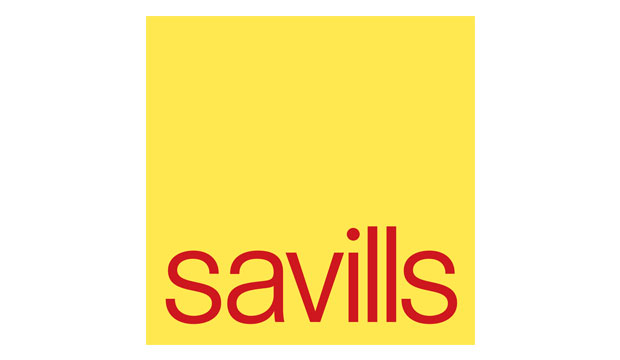
I've yet to meet any follower of the winter sport who is not delighted that sense has prevailed in the decision not to extend the Cheltenham Festival to five days. Yesterday's news has reassured Jump racing fans that the Jockey Club still has the best interests of the sport at heart, rather than the size of its bank balance.
Withington trainer Fergal O'Brien, leading the Trainers' Championship, expressed relief at the decision, fearing it would "strangle the golden goose". He was joined by other trainers like Nicky Henderson and Paul Nicholls.
The simple truth of the sport is that Cheltenham has become for some a marmite fixture. To thousands of racing fans, four days in March remain a pilgrimage to enjoy the best of the sport at its self-appointed headquarters. And yet a vast swathe of owners, trainers and horses within the sport, especially in the UK, remain unaffected by the largesse of Cheltenham in offering £4m+ across the 28 races, and would prefer that average prize funds across everyday races improved overall, where they would reach more of the constituents of the sport.
But if Cheltenham thinks retaining the status quo will maintain the magic of the Festival, then they must think again. There is a long list of issues to address to win back capacity fields.
The Festival now attracts well over 100 runners from Ireland, some 25% of the total volume. Whilst this sounds great, in reality, it is collected in too few hands. Between them, J P McManus and Gigginstown field huge teams as Gordon Elliott and Willie Mullins shape up against each other. Take a gander at the Irish Jump Trainers' Championship to corroborate the point; Elliott and Mullins between them gobble up a lion's share of the annual prize money, whilst it only takes you to drop to fifth place to see earnings of under €1m, and by 15th place, that figure is €300,000.
The UK's wider racing programme has allowed a broader spread of trainers to earn from their inmates, and ownership is more broadly spread among syndicates and individual owners.
For a trainer fortunate enough to have a horse worth running at the Festival, there is also the likelihood you will come across some blue-blood from Messrs Mullins, Elliott, Nicholls or Henderson. Avoiding the elite squadrons of the sport's leading trainers is a very necessary requirement nowadays, and the race programme has spawned plenty of alternatives. In part, it is these alternatives that have eroded the competitiveness of the championship races at the Festival.
There was a marked shift toward Aintree from British trainers seeking to avoid Irish challengers this Spring, which reinforced the continuing resurgence of Liverpool against its Cotswold cousin. Whilst Aintree isn't imminently going to challenge Cheltenham for top honours, the appeal of alternatives to Cheltenham is growing among owners and trainers, where previously, Cheltenham was considered a must-run.
Whilst Aintree's programme is not necessarily within Cheltenham's remit to alter, the range of choice within the Festival itself makes it easy to skirt around top flight competition. if the Ballymore looks a hot race, dropping into the Albert Bartlett might prove an easier race, and vice versa. And now that novice mares have their own hurdle and chase, this erodes the field sizes for the 4 main novice hurdles and 3 novice chases. Given the contraction of fields in recent years, it may be time to reduce the number of races, not consider increasing them.
That shift is also reflected in the pursuit of high value tickets and hospitality from Cheltenham, which shows some signs of running out of rope. Cheltenham's audience has never been like Ascot's. Racing fans in smart boxes have not always hankered for exotic food & beverage options where simple nursery food has proven ideal before. Its audience is often as happy mucking in at a Point-to-Point than quaffing Bollinger at Cheltenham (although the two are not mutually exclusive). Although the cost of living crisis is unlikely to affect those owning and running horses, it will affect those that require travel and accommodation from far away, and locals for whom there can be other alternatives within the county. It all mounts up, and Cheltenham received quite a lot of negative feedback this Spring about profiteering from catering prices, unfair or not.
I've enjoyed Cheltenham through warm sunshine, bitter March winds, snow and sideways rain. It's a truism that the fans turn out whatever the weather. But as this Autumn is illustrating, weather is becoming a consistent threat to the sport in its unreliability. Trainers cannot rely on good to soft ground in March, and recent ground conditions have ranged from Good to Heavy.
Equally importantly from a commercial perspective, growing an audience among people not knowledgeable about the sport leaves the course more reliant upon non-equine quality of experience. Finding somewhere to sit or stand in the dry and warm is a prerequisite. A day at the Festival can be exhausting without a bolthole to retreat to, and boltholes tend to cost money. This impacts upon their decision-making in the purchase process for tickets.
The argument for extending the Festival has always relied in part upon the gift of Cheltenham that keeps on giving, releasing valuable revenue to be shared in the maintenance of other racecourses around the Jockey Club Group. Although the argument to extend the Festival has been lost this time around, expect it to come around again, if not necessarily immediately. The lure of the filthy lucre will be difficult to ignore.